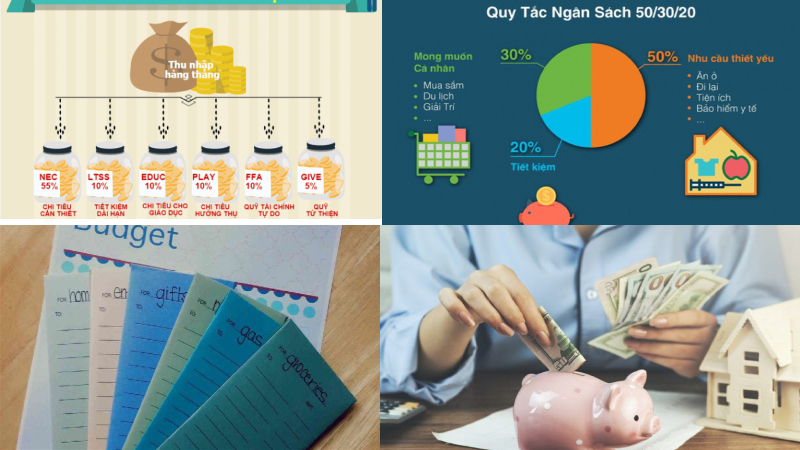If you’re looking to learn effective expense management tips, please continue reading the following article!
1 Control your expenses

You should track your expenses
If you don’t know where your money is going, it will be difficult to manage your financial situation. Therefore, tracking your expenses is essential to understanding your spending habits and effectively controlling them.
2 Use an expense notebook or financial management apps
This method, known as the Kakeibo method in Japan, involves recording your income and expenses in a notebook to manage your expenses effectively.
At the end of each month, you can review your expenses, identify necessary and unnecessary items, and make adjustments for the following month accordingly.

Personal finance management apps are becoming more and more popular
Alternatively, there are various mobile apps available nowadays that can assist you in managing your personal finances, eliminating the need for manual note-taking. Some popular apps include Money Keeper, Money Lover, and more.
3 Use money management rules
If you struggle with allocating your income to different expenses, consider applying popular expense management methods such as the 50/30/20 rule.
According to this rule, allocate 50% of your income to essential expenses like rent, food, and transportation, 30% for discretionary spending like travel and shopping, and 20% for savings and debt repayment.

Expense management methods
Another method is T.Harv Eker’s 6 Jar Formula, which involves dividing your income into 6 parts: 55% for necessities (NEC), 10% for education (EDU), 5% for giving (GIV), 10% for play, 10% for a financial freedom account (FFA), and 10% for long-term savings (LTSS).
4 Start saving when you receive income
Putting money in a savings account is a sensible approach to optimize your expenses and prevent overspending. By doing so, you not only reduce your expenses but also earn interest on the deposited amount at the bank.
Some individuals worry that savings accounts do not yield high interest rates, causing the value of money to decrease over time. However, even small regular increases and long-term accumulation can yield unexpected profits.
 Putting money in a savings account is a simple way to manage expenses
Putting money in a savings account is a simple way to manage expenses
Modern banking services now offer online savings options, allowing you to automate your savings on a weekly or monthly basis. For example, VPBank’s Easy Saving deposit program provides features such as unlimited deposits and the ability to deposit money anytime without visiting a physical bank branch, making it more convenient to save money.
These are just a few tips that can help you effectively manage your expenses. We hope this article provides useful guidance for improving your financial management skills!



































